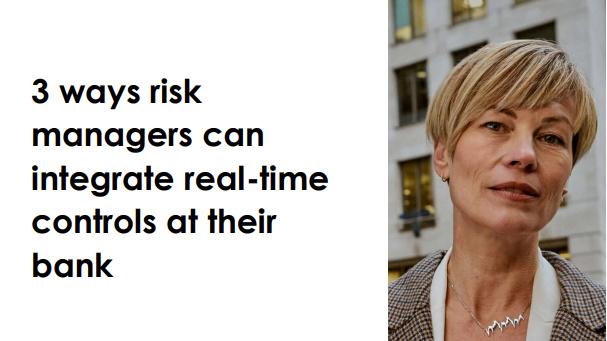Apple co-founder Wozniak echoes sexist Apple Card allegations
Consumers claim Apple credit limits are ten times larger for men


Sign up today and you will receive a free copy of our Future Focus 2025 report - the leading guidance on AI, cybersecurity and other IT challenges as per 700+ senior executives
You are now subscribed
Your newsletter sign-up was successful
An algorithm used by Goldman Sachs to determine the credit limits for Apple Card customers will be probed by US regulators for alleged discrimination towards women.
Apple co-founder Steve Wozniak supported the claims made by David Heinemeier Hansson on Twitter, which ultimately went viral, which allege his wife's Apple Card credit limit was 20 times lower than his own, despite her having a better credit score.
Hansson's scathing Twiter tirade spanned multiple threads, adding that even when his wife paid her "ridiculously low" limit in full and in advance, the card wouldn't permit her to spend on it until the next billing period.
Wozniak, who helped found Apple alongside Steve Jobs in 1976, substantiated Hansson's claims, replying to his original tweet with his own similar story that his credit limit was ten times higher than his wife's.
IT Pro contacted Goldman Sachs but it did not reply at the time of publication.
An Apple spokesperson confirmed to IT Pro that the company has little input in the running of the card, saying "all credit decisioning and operational management of the card is done by the bank".
Upon raising the issue with Apple's customer service, Hansson was told the representatives didn't know why the limits were different, they just said "it's just the algorithm," according to Hansson. Following discussions, his wife's limit was subsequently raised to match his own.
Sign up today and you will receive a free copy of our Future Focus 2025 report - the leading guidance on AI, cybersecurity and other IT challenges as per 700+ senior executives
"The department will be conducting an investigation to determine whether New York law was violated and ensure all consumers are treated equally regardless of sex," said the New York Department of Financial Services in a statement to Bloomberg.
"Any algorithm that intentionally or not results in discriminatory treatment of women or any other protected class violates New York law."
The Apple Card is Goldman Sachs' first credit card and accompanies its push to providing more consumer-targeted products such as personal loans and savings accounts.
"Our credit decisions are based on a customer's creditworthiness and not on factors like gender, race, age, sexual orientation or any other basis prohibited by law," said the investment bank to Bloomberg.
It's currently unclear if the algorithm used to determine the credit limits is developed by Apple or Goldman Sachs. Whichever company developed the algorithm, it's unlikely to be used with any credit card form other providers. It's also unclear whether Apple knowingly approved the algorithm to be used on its product.
Calls to regulate the use of AI and algorithms have been heard for years now and this isn't the first time discrimination has been alleged towards the automated decision-making tools.
A history of bias
Algorithms have been used prevalently in the job recruitment industry to quickly filter out applicants, saving a lengthy process of human analysis of CVs and covering letters. Such technology has been widely scrutinised, particularly in the UK where specific cases have been met with complaints.
In March 2019, the UK government launched an investigation into possible bias in algorithms. One example cited was the Harm Assessment Risk Tool used in Durham to determine the likelihood of criminals reoffending, which was ruled to be unfairly targeting users based on their income.
Candidates that make it through to an interview stage may also be met with a camera to analyse their facial expressions and voice to determine whether they would be right for the job an implementation which has been condemned by privacy advocates.
The Home Office is also the subject of a legal investigation into its "secretive" algorithm used to make important decisions regarding immigration policy. The software is said to judge immigration applicants unfairly, when a human review may account for their merits in a fairer way, rather than relying on just simple criteria such as age or nationality.

Connor Jones has been at the forefront of global cyber security news coverage for the past few years, breaking developments on major stories such as LockBit’s ransomware attack on Royal Mail International, and many others. He has also made sporadic appearances on the ITPro Podcast discussing topics from home desk setups all the way to hacking systems using prosthetic limbs. He has a master’s degree in Magazine Journalism from the University of Sheffield, and has previously written for the likes of Red Bull Esports and UNILAD tech during his career that started in 2015.
-
 The agentic identity crisis
The agentic identity crisisITPro Podcast With millions of AI agents being deployed, how can security teams maintain oversight and governance?
-
 Are we facing an AI-fueled talent pipeline crisis?
Are we facing an AI-fueled talent pipeline crisis?In-depth As experts say AI is reducing entry-level roles, what does this mean for the seniors of tomorrow and the future of business?
-
 Three ways risk managers can integrate real-time controls to futurize operations at the bank
Three ways risk managers can integrate real-time controls to futurize operations at the bankWhitepaper Defining success in your risk management and regulatory compliance
-
 Tech pioneers call for six-month pause of "out-of-control" AI development
Tech pioneers call for six-month pause of "out-of-control" AI developmentNews The call to action follows rising concerns over the potential risks of powerful new generative AI systems
-
 GDPR 2.0: What do Europe’s new AI rules mean for businesses?
GDPR 2.0: What do Europe’s new AI rules mean for businesses?In-depth Although they target 'high-risk' use cases, swathes of organisations could be affected
-
 IT Pro 20/20: What the EU's new AI rules mean for business
IT Pro 20/20: What the EU's new AI rules mean for businessIT Pro 20/20 The 17th issue of IT Pro 20/20 considers the effect of new regulations on the IT industry
-
 Taming the machine: AI Governance
Taming the machine: AI GovernanceIn-depth As machine learning expands, ensuring these tools are properly managed is a critical priority for all businesses
-
 IT Pro 20/20: The future of augmentation
IT Pro 20/20: The future of augmentationIT Pro 20/20 The ninth issue of IT Pro 20/20 looks at our changing relationship with augmentation technology
-
 The House of Lords will never bring tech giants to book
The House of Lords will never bring tech giants to bookOpinion The multiple ways politicians have tried to regulate social media are uniformly daft
-
 Twitter shuts down 125,000 ISIS-related accounts
Twitter shuts down 125,000 ISIS-related accountsNews Social network emphasises its commitment to combatting extremism